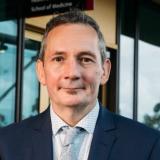The Australian Government is now in caretaker period. During this time, updates on this website will be published in accordance with the Guidance on Caretaker Conventions, until after the election.
The Public Health and Health Systems Committee provides strategic advice on public health, health and medical research, and the Australian health system.
The NHMRC-MRFF Public Health and Health Systems Committee will advise the NHMRC and NHMRC Chief Executive Officer (CEO) and/or the Australian Medical Research Advisory Board (AMRAB) and CEO of the Australian Department of Health and Aged Care’s Health and Medical Research Office (HMRO) on:
- Strategies for improving individual and population health through research and research translation that strengthens:
- prevention and public health, and
- primary care and other health services
- Strategies for embedding research translation in the health system, such as:
- facilitating and embedding an evidence-based culture in the health system
- improving the uptake of evidenced-base health care in the health system
- increasing the linkages between clinical practice and research practice
- Barriers to the uptake of research evidence within the Australian health system
- Any other matter referred to it by the NHMRC CEO and/or HMRO CEO.
Membership
The joint National Health and Medical Research (NHMRC)-Medical Research Future Fund (MRFF) Public Health and Health Systems Committee is established as a working committee under Section 39 of the NHMRC Act 1992. The committee members for the 2024–2027 triennium are below.
Committee members

Chair,
Adjunct Professor
Darryl
O'Donnell
Adjunct Professor Darryl O’Donnell is a seasoned health leader with over 30 years experience in government, research, and not-for-profit roles. As Principal and Director of Praxis Insights, he works as a management consultant with health and social services organisations on leadership, organisational culture, planning, policy, advocacy, and management.
He has led transformative initiatives in HIV and mental health across government and community sectors. As CEO of Health Equity Matters, he advanced Australia's HIV response, achieving reforms that significantly reduced incidence. At the Mental Health Commission of NSW, he established a new public sector agency and drove major mental health reforms. His experience includes roles on ministerial committees and directorships with not-for-profit organisations.
Adjunct Professor O’Donnell serves on the board of the Consumers Health Forum of Australia and chairs its governance committee. He is a Fellow of the Governance Institute of Australia and a graduate of the Australian Institute of Company Directors. His academic contributions and research partnerships in public administration and health policy have earned him an adjunct professorship at the University of NSW.

Adjunct Professor
Ginny
Barbour
Professor Virginia Barbour is the Editor-in-Chief of the Medical Journal of Australia. She is an Adjunct Professor at QUT and was previously co-lead of the Office for Scholarly Communication at QUT and Director of Open Access Australasia.
She trained in the UK in medicine at Cambridge University and University College and Middlesex Hospital medical schools, specialising in haematology. She went on to do a DPhil at Oxford University and post-doctoral research in the US on globin gene regulation.
She was one of the 3 founding editors of PLOS Medicine. She has been involved in many international open access, innovative scholarly communication and publication and research integrity initiatives. She was involved in the final drafting of the UNESCO Open Science Recommendation in 2021. She was previously Chair of the Committee on Publication Ethics (COPE). She is currently Co-Chair of the Declaration on Research Assessment (DORA).

Professor
Tracey
Bucknall
Professor Tracey Bucknall is a Deakin Distinguished Professor and Co-Director of the Centre for Quality and Patient Safety Research, Institute of Health Transformation, Deakin University. She holds a joint appointment between the School of Nursing and Midwifery, Deakin University and Alfred Health as the Foundational Chair in Nursing and Director of Nursing Research. Professor Bucknall has held various leadership roles as a clinician-academic in universities and in public and private hospitals. As a decision scientist, Professor Bucknall’s research focuses on improving health services and patient safety, augmenting clinical decision-making of clinicians and consumers, and facilitating the implementation of research into clinical practice.
Professor Bucknall has been an international advisor to governments and health services and held honorary professorial roles with Bangor (UK), Southern Denmark, Macquarie and Monash Universities. In recognition of her research leadership, she was inducted into the International Nurse Researcher Hall of Fame of Sigma International and holds a Fellowship of the American Academy of Nursing. She has been Deputy Board Chair and a Company Board Director in aged care, served on advisory committees for the Australian Commission on Safety and Quality in Health Care and various National Health and Medical Research Council grant review panels since 2010.

Adjunct Professor
Paul
Burgess
Paul is a dual qualified Public Health Physician and Rural Generalist with more than two decades of experience in First Nations primary health care and Public Health delivery in Australia’s Northern Territory. His clinical and research interests span health systems research, research translation, quality improvement, health workforce reforms, value based health care, co-designing care with health service users, integrated care, and health equity. He is the Executive Director of the Health Statistics and Informatics team at NT Health.

Professor
Karen
Canfell
Professor Karen Canfell is a cancer epidemiologist whose work has impacted cancer policy and implementation of cancer control strategies nationally and internationally. She is Professor of Public Health and NHMRC Leadership Fellow, School of Public Health, University of Sydney. Previously, she served as inaugural Director of The Daffodil Centre, a joint venture between Cancer Council NSW and the University of Sydney, from 2021 to 2024. She holds a D.Phil. in epidemiology from the University of Oxford (2004). In 2024, she was made Companion of the Order of Australia in the King’s Birthday Honours for eminent service to medicine as an epidemiologist, particularly through cancer research, to tertiary education, and as a mentor and leader. Her work has supported the development of the World Health Organisation's global strategy to accelerate the elimination of cervical cancer, and she now leads the Elimination Partnership for Cervical Cancer in the Indo-Pacific (EPICC), supported by the Australian government and the Minderoo Foundation.

Mr
Harry
Iles-Mann
Harry Iles-Mann has been living with complex chronic physical and mental ill health since early childhood. He had his first major surgery at 16 and has undergone 3 more to date – including 2 full liver transplants in 2020 and 2021 (spending more than 30 weeks admitted to hospital in 2021 alone).
As a professional he is a health consumer advocate, lived-experience engagement and co-design consultant, youth mental health ambassador, speaker, and committee member. He pairs his lived-experience of the Australian health and medical sector with professional expertise in advocacy and health strategy to provide insight into lived-experience driven reform and innovation of health care system and service design and delivery in strategy, policy, and decision-making.
Mr Iles-Mann holds membership, and some chairing responsibilities, of multiple state, territory and Commonwealth health advisory steering and consumer committees. He draws on his skills in communication, co-design and health consumer engagement to develop and apply effective strategic and policy reform in health and facilitates dialogue and co-design between stakeholders in health administration, service provision and consumers.
Healthcare management, health strategy and policy reform, digital transformation, mental health and youth mental health advocacy, chronic and disability health advocacy, and applying patient experience to reform service provision, policy, and strategic decision making in multiple care environments.

Professor
Louise
Maple-Brown
Louise Maple-Brown is a Senior Endocrinologist at the Royal Darwin Hospital (NT, Australia), Deputy Director Research (April 2023) and Senior Principal Research Fellow at Menzies.
Louise established and leads the Diabetes across the Lifecourse: Northern Australian Partnership. The partnership includes several large NHMRC-funded projects, including the Youth Type 2 Diabetes Models of Care, Northern Territory and Far North Queensland Diabetes in Pregnancy Partnership and The PANDORA (Pregnancy And Neonatal Diabetes Outcomes in Remote Australia) Cohort Study.
After completing the majority of her physician and endocrinology training at St Vincent’s Hospital Sydney, Louise moved to Darwin in 2002 to pursue her passion of working with Aboriginal and Torres Strait Islander peoples and communities to improve health outcomes. Louise was Head of Department of Endocrinology at Royal Darwin Hospital (2012–2022) and founded the NT Diabetes Network in 2018 (inaugural Chair 2018–2022). She was a member of the Australian Diabetes Society Council (2014–2022) and the Council of the Australasian Diabetes in Pregnancy Society (2011–2014). Louise has been providing clinical diabetes services to urban and remote NT communities for over 20 years. She is a current member of the NT Clinical Senate.
In 2020 Louise was awarded the Australian Diabetes Society Ranji and Amara Wikramanayake clinical Diabetes Mid-Career Research award and in 2021, Louise was elected as a Fellow of the Australian Academy of Health and Medical Sciences.

Associate Professor
Veronica
Matthews
Dr Veronica Matthews (Quandamooka), Principal Research Fellow, is based at the University Centre for Rural Health, The University of Sydney in Lismore. She facilitates community-led research, embedding First Nations knowledges and rights as the original custodians to revitalise holistic health care systems centred on Country. She has a background in ecology, environmental toxicology and primary health care systems and feels extremely privileged to be able to blend her passions of healthy Country and healthy mob. She co-leads the Indigenous Knowledges theme of the Healthy Environments and Lives (HEAL) National Research Network.

Professor
Danielle
Mazza
Professor Danielle Mazza AM is an internationally distinguished general practice clinician researcher and Head of the Department of General Practice at Monash University. Her research and leadership have been highly influential in reducing inequities in access and improving the quality of clinical care delivered in general practice in women’s sexual and reproductive health, preventive care, the early detection of cancer and antimicrobial stewardship.
A strong proponent of evidence-based care, she has led and contributed to the development and implementation of key general practice guidelines used nationwide and provides expert advice to professional, government and policy groups nationally and around the world. She leads the NHMRC Centre of Research Excellence in Women's Sexual and Reproductive Health in Primary Care (SPHERE) and Chairs the Royal Australian College of General Practice’s Preventive Care Guideline (the RACGP’s key guideline used by greater than 35,000 GPs) Development Group.
Professor Mazza is a ministerial appointment to the Victorian Women’s Health Advisory Council and the National Women’s Health Advisory Council, chairing the former’s Access to LARC and Termination Subcommittee and co-chairing the latter’s Access, Care and Outcomes Subcommittee. She is also a member of the Therapeutic Goods Administration Women’s Health Products Working Group and the National Endometriosis Advisory Group. Over the course of her career she has acquired more than $48 million in competitive funding ($36 million of which has been Category One funding, greater than $25 million as CIA), including 4 NHMRC project grants, 4 MRFF grants, 4 partnership projects, 1 Dementia Research Team Grant, and 4 CREs (2 of which she has led). She has published 258 peer-reviewed publications (73 as first-author), 128 of which were published in the last 5 years (H index: 29 Scival; 38 google scholar, Citations: 3094 Scopus and 6035 Google Scholar) and ranks in the top 0.7% of researchers worldwide in the field of contraception (expertscape).
Professor Mazza was awarded a Member of The Order of Australia (AM) in 2023 for her significant service to medicine and medical research, particularly women’s health and in the same year she was awarded a Fellowship by the Australian Academy of Health and Medical Sciences in recognition of her important contributions to health and medical research.

Professor
Caroline
Miller
Professor Caroline Miller is the Director of the Health Policy Centre at SAHMRI (South Australian Health and Medical Research Institute). She is also an NHMRC Emerging Leadership Fellow 2 at the University of Adelaide. Caroline is qualified in Psychology, Economics and Public Health.
The Health Policy Centre undertakes research in public health prevention – specialising in tobacco and vaping, food policy and obesity prevention, alcohol and social marketing and communication for health behaviour change.
Caroline has specialised in tobacco control for 30 years. She was one of a select group of scientists advising the Australian Government on world-leading tobacco plain packaging laws. She led elements and contributed to the larger research program which underpinned the law, and its defence against international legal challenges. She established and leads the Tobacco Control Research + Evaluation program which undertakes population monitoring, research and evaluation in all aspects of tobacco control, including vaping. She advises governments locally and internationally in preventive health.
Caroline leads an NHMRC-funded program of public health research in food policy and obesity prevention, with a specialist focus on ultra-processed foods, sugar sweetened and non-sugar sweetened beverages. She has specialist expertise in labelling and is currently investigating added sugar labels and consumer warning labels for beverages. The Centre also has research interests in weight-related stigma.

Professor
Julie
Redfern
Professor Julie Redfern (PhD FAAHMS FESC GAICD) is a Professor of Public Health and Director of the Institute for Evidence-Based Healthcare at Bond University. Professor Redfern currently holds a NHMRC Investigator Grant Leadership 2 (winner of NHMRC Elizabeth Blackburn Award for Health Services). She is also a Physiotherapist, and Adjunct Professor in Sydney Nursing School Faculty of Medicine and Health, University of Sydney. Professor Redfern is a Fellow of the Australian Academy of Health and Medical Sciences (FAAHMS) and the European Society of Cardiology (FESC).

Professor
Chris
Reid
Professor Christopher Reid is a cardiovascular epidemiologist and clinical trialist with a specific interest in large scale clinical trials, quality improvement and outcomes research. He holds a NHMRC Principal Research Fellowship and has had continual NHMRC research funding since 1997. He holds Professorial Research Fellow positions at both Curtin and Monash University and is Co-Director of the Monash Centre for Cardiovascular Research and Education in Therapeutics (CCRE) and Director of the Curtin Centre for Clinical Research and Education (CCRE).

Professor
Paul
Scuffham
Member-in-Common with Research Committee
Professor Scuffham’s research is focused on identifying the value for money of healthcare interventions, elicitation of preferences from patients and the public, and methods of priority setting. He applies his research interests across the breadth of cardiac conditions, genomics, digital health, vaccines and more.
He founded the Centre for Applied Health Economics and was Director of the former Menzies Health Institute Queensland, Griffith University. In his professional society, he was the inaugural President of the Australian Chapter of the International Society for Pharmacoeconomics and Outcomes Research, and recent Chair of the Asia Consortium.
He is a Fellow, Board member, and Chair of the Policy Advisory Committee of the Australian Academy of Health & Medical Sciences.

Professor
Christine
Stirling
Professor Christine Stirling (Ba Nursing, MPA, PhD) is Head of School of Nursing at the University of Tasmania. As Head of School Christine ensures preparation for a future ready nursing workforce. Christine leads the School’s Transforming Research in Ageing theme which prioritises working in partnership to improve health for older people by improving aged care and health services, promoting evidence-based nursing practice, and supporting workforce development. Professor Stirling is a Past President and lifetime member of the Australian Association of Gerontology and has contributed to national level policy development. Christine has led evaluation and mixed method research for two decades with an extensive record of mixed method health services research using real world and implementation approaches to improve consumer voice and access in care of the older person. She has published over 100 articles and received over $10 million in grants.

Professor
Andrew
Way
Andrew is currently Board Chair of HealthShare Victoria and holds a range of other health related non-executive roles. Andrew also undertakes senior interim assignments supporting health and health related organisations through CEO and other senior executive changes.
Andrew commenced his career as a nurse in the UK National Health Service and after a range of clinical positions, moved first into nursing leadership and then in the late 1980’s into general management.
Andrew has held several senior executive roles in research focused hospitals in both the UK and Australia. He has been a Chief Executive for more than 20 years most recently as the CEO of Alfred Health in Melbourne Victoria. Awarded an AM for his services in support of clinical research and leadership he continues to advocate for closer integration of clinical research and clinical practice.

Emeritus Professor
Paul
Worley
Professor Paul Worley is a rural doctor and Emeritus Professor at Flinders University. His ground‐breaking work in the science of rural community based medical education, and its impact on addressing the maldistribution of doctors for rural and underserved areas, has changed the face of medical education and rural medical workforce policy nationally and internationally. His leadership of junior doctor training in general practice has transformed the transition from medical school to post‐graduate training for general practice. He is a past President of the Rural Doctors Association of South Australia, a previous Vice President of Australian College of Rural and Remote Medicine (ACRRM) and consultant to the World Health Organization (WHO).